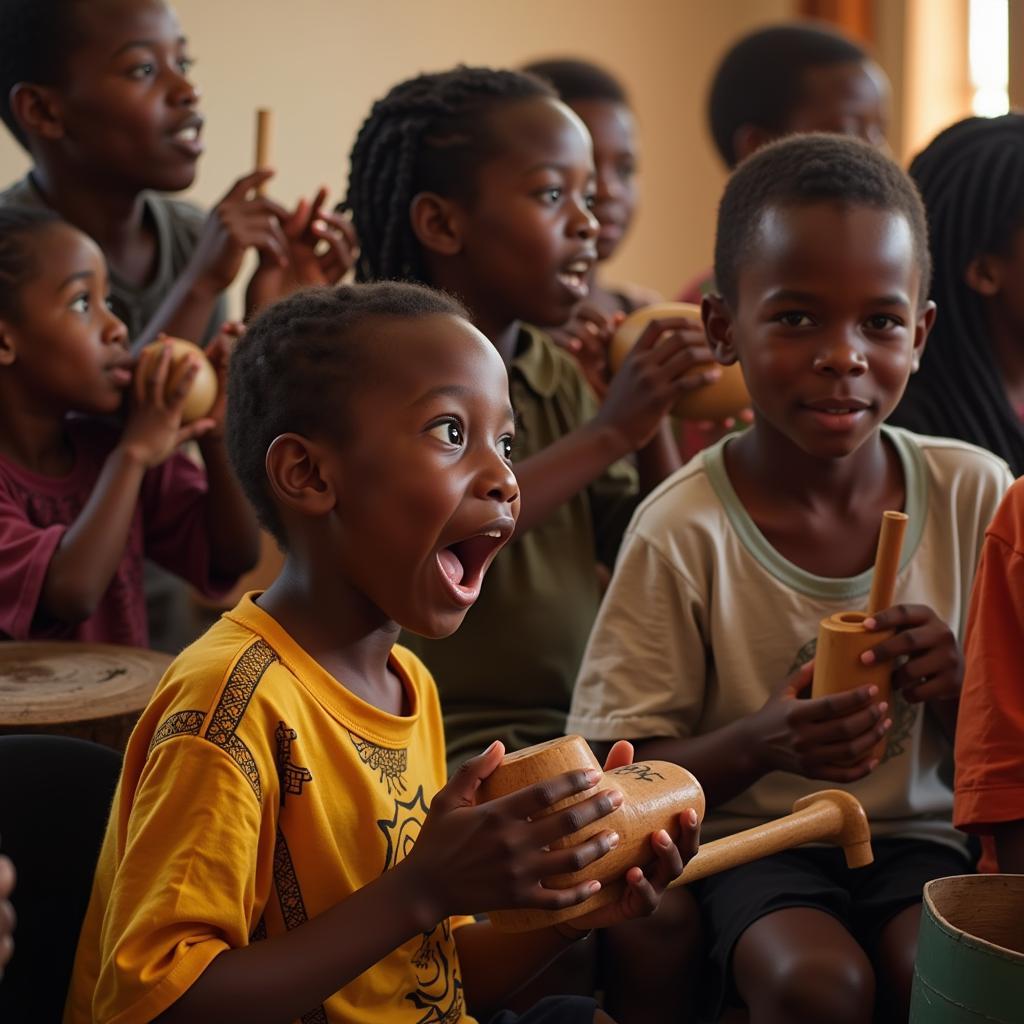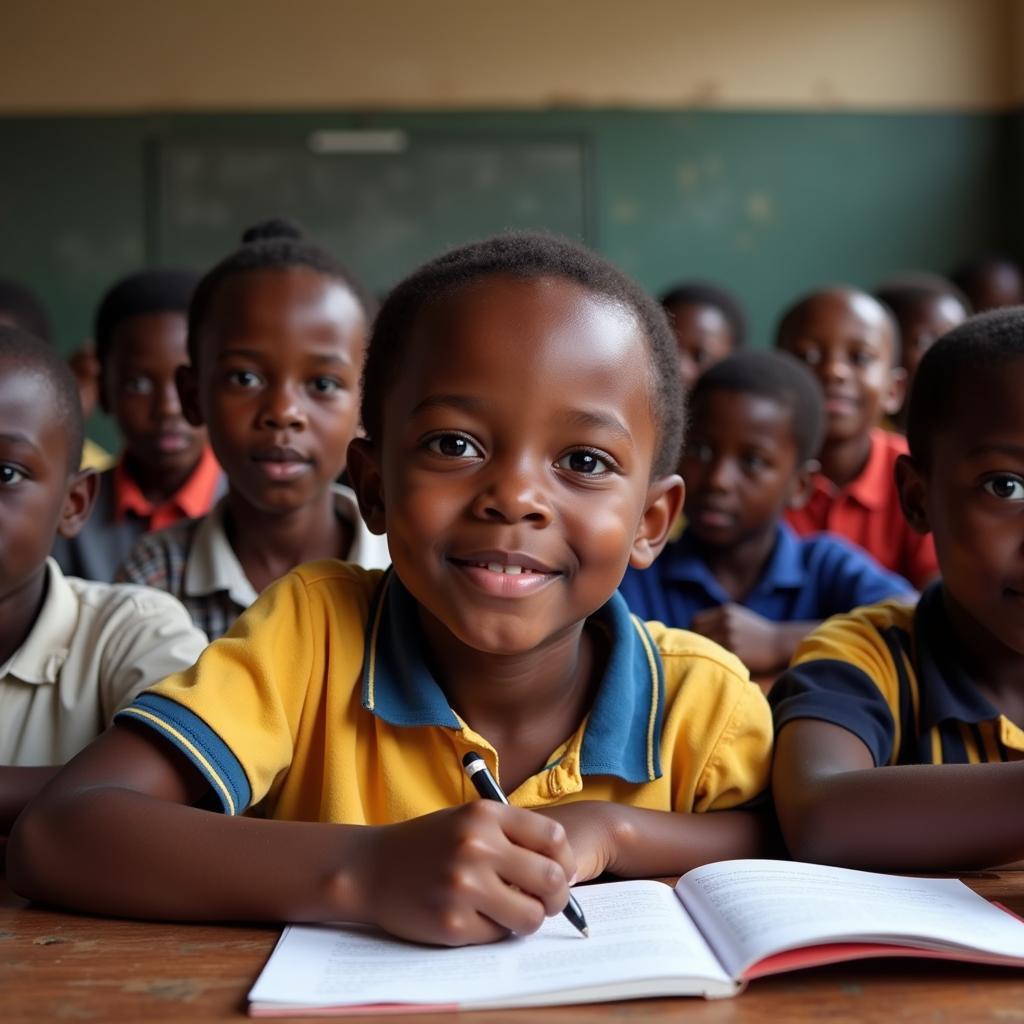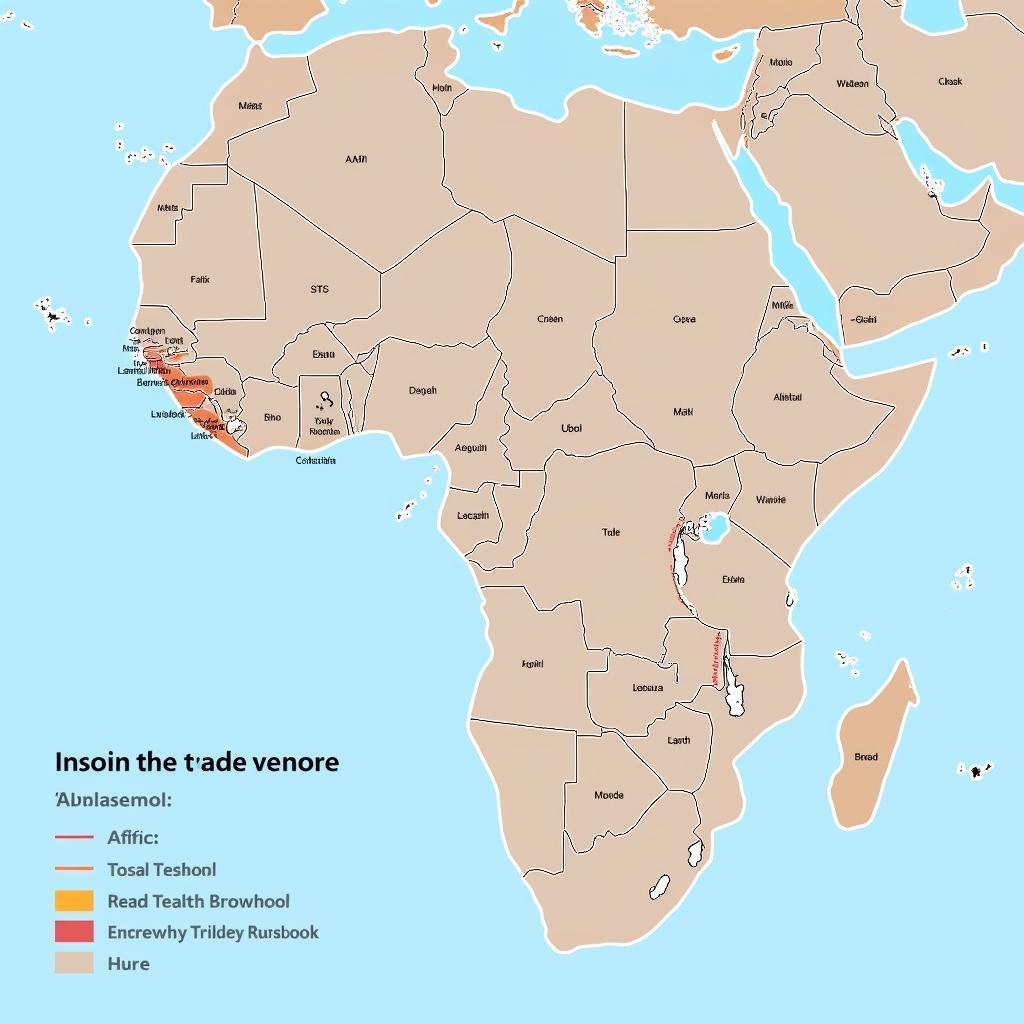The African Child: A Tapestry of Resilience, Culture, and Hope
The phrase “African And Child” conjures a complex image, steeped in both vibrant cultural heritage and deeply rooted challenges. It speaks to the laughter echoing across dusty plains, the rhythm of drums pulsing through a child’s heart, and the quiet resilience woven into the fabric of daily life. However, it also highlights the stark realities of poverty, inequality, and limited access to education and healthcare that many children across the continent face.
A Continent of Diversity
It’s crucial to recognize that Africa is not a monolith. Within its 54 countries lie a breathtaking tapestry of cultures, languages, and traditions. An “African child” could be a young Maasai herder tending cattle beneath the Kenyan sun, a budding entrepreneur navigating the bustling markets of Lagos, or a student poring over books in a rural Rwandan schoolhouse. Each child, with their own unique story, contributes to the vibrant mosaic of the continent.
 Children playing music
Children playing music
The Power of Ubuntu
A fundamental concept in many African cultures is “Ubuntu,” a Nguni Bantu term often translated as “humanity towards others.” It emphasizes the interconnectedness of humanity, promoting compassion, respect, and the belief that a person’s worth is intrinsically linked to their relationships with others. This philosophy profoundly impacts child-rearing practices, fostering a strong sense of community and shared responsibility for the well-being of all members.
Challenges and Opportunities
While rich in culture and heritage, many African children grapple with challenges stemming from poverty, limited access to quality education, and healthcare disparities. Organizations like UNICEF are working tirelessly to address these issues, advocating for children’s rights, improving access to clean water and sanitation, and supporting education initiatives. To learn more about the challenges and opportunities facing African children, explore resources like the African Charter on the Rights and Welfare of the Child.
The Role of Education
Education is widely recognized as a cornerstone for individual and societal development. Across Africa, there’s a burgeoning movement to provide quality education for all children, recognizing it as a pathway out of poverty and a tool for empowerment.
 Children in a classroom
Children in a classroom
From initiatives promoting early childhood development to programs fostering digital literacy, efforts are underway to equip children with the skills and knowledge needed to thrive in the 21st century. To understand the impact of these efforts, explore stories like African childhood by Nelson Mandela, which offer poignant glimpses into the transformative power of education.
The Importance of Storytelling
Storytelling is deeply ingrained in African cultures. Passed down through generations, folktales, myths, and proverbs not only entertain but also impart wisdom, instill values, and preserve cultural heritage. These stories often feature animal characters with human-like qualities, teaching children about morality, courage, and the importance of community. Explore the enchanting world of African children folktales and discover the power of storytelling in shaping young minds.
A Future Brimming with Potential
The African child, brimming with resilience, creativity, and an unyielding spirit, represents a continent on the cusp of transformation. Investing in their health, education, and well-being is not just a moral imperative but a strategic investment in a brighter future for Africa and the world.
Frequently Asked Questions about African and Child
1. What are some common challenges faced by African children?
Many African children face challenges related to poverty, limited access to quality education and healthcare, and vulnerability to diseases like marasmus.
2. How can I support the well-being of African children?
You can support organizations working to improve the lives of African children through donations, volunteering, or raising awareness about their plight.
3. What are some ways to learn more about African cultures?
Explore resources like books, documentaries, and websites dedicated to African art, music, literature, and history.
4. Where can I find inspiring stories about African children?
Many online platforms and publications share stories about the resilience, creativity, and achievements of African children.
5. What is the significance of “Ubuntu” in the context of child development?
Ubuntu emphasizes the interconnectedness of humanity, fostering a sense of community and shared responsibility for the well-being of all members, including children.
Need Help?
For support or inquiries, contact us:
Phone: +255768904061
Email: [email protected]
Address: Mbarali DC Mawindi, Kangaga, Tanzania
Our dedicated customer support team is available 24/7 to assist you.



